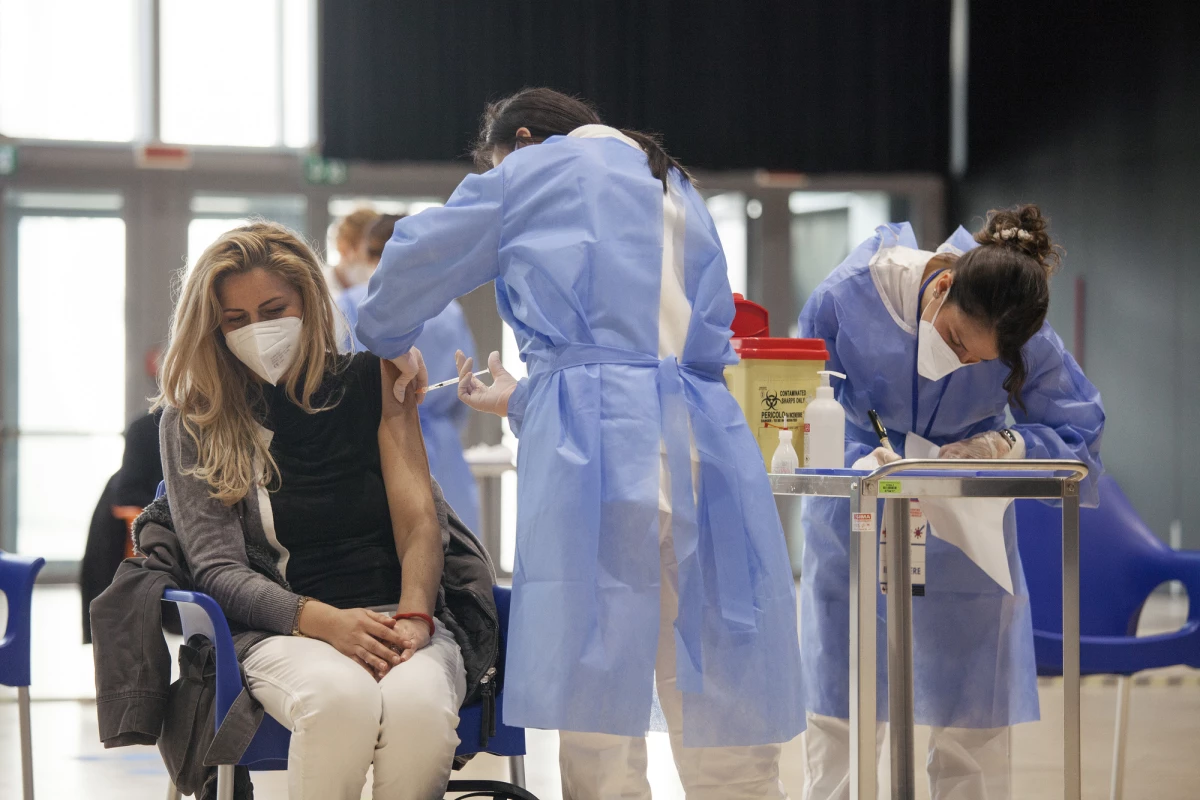New research is showing that although some vaccinated people are still contracting COVID-19, they generally experience milder disease for a shorter period of time with a low viral load. The study, published in the New England Journal of Medicine, offers some of the first robust data tracking the severity of “breakthrough infections.”
Veteran BBC reporter Andrew Marr recently published an op-ed recounting his experiences of COVID-19. Marr was fully vaccinated, noting “I wasn't behaving recklessly – but I did feel pretty much invulnerable”.
Marr’s story didn’t end in hospitalization, but instead describes a few days of fever, aches and flu-like symptoms. While some may read his story as an example of vaccine failure, it is in fact quite the opposite. At 61 years old Marr is without a doubt a prime example of someone at a high-risk of severe COVID-19, yet vaccination turned the disease into something that took him less than a fortnight to recover from.
“I recovered quite quickly and, it seems, completely,” Marr writes. “By the time my quarantine ended, I felt fine.”
A new study is offering some strong data on how vaccination can attenuate COVID-19 in the few people who still develop the disease. The research looks at data from two ongoing studies funded by the Centers for Disease Control and Prevention (CDC). Pfizer and Moderna mRNA COVID-19 vaccines were the only candidates used in the cohort studied.
The studies are following several thousand front-line workers, tracking infection and re-infection in vaccinated and unvaccinated subjects. Those involved in the study supply weekly nasal swab PCR tests, regardless of vaccination status.
Up to mid April 2021 the new research counted 204 SARS-CoV-2 infections in the entire cohort of 3,975. Only five of those infections occurred in fully vaccinated subjects and 11 infections were detected in partially vaccinated subjects (≥14 days after dose 1 and <14 days after dose 2).
This means full vaccination was 91 percent effective at preventing any kind of SARS-CoV-2 infection, symptomatic or asymptomatic. These results match efficacy data reported last year from Phase 3 trials as well as early real-world data.
"We are still seeing the same high levels of vaccine effectiveness, so we feel good about that," says Jeff Burgess, principle investigator on the new research. "But more importantly, we've added a number of measures of the severity of infection among individuals who have been vaccinated as a comparison to those who haven't, and we measured how much virus there is and for how long."
These new measures offer up valuable insights into how vaccination can reduce the impact of COVID-19 in those nine percent still ultimately infected. Both partially and fully vaccinated subjects reported fewer overall sick days and a significantly shorter duration of illness compared to unvaccinated subjects.
Most unvaccinated infections could be detected in tests for at least two weeks, and often longer, whereas the majority of vaccinated infections were detectable for one week at most.
“Partially or fully vaccinated participants also had a 58 perecent lower risk of febrile [fever] symptoms and a shorter duration of illness, with approximately six fewer days of symptoms and two fewer days spent sick in bed, than unvaccinated participants,” the researchers write in the study.
Alongside this, at the peak of infection viral load in vaccinated subjects was on average 40 percent lower than that seen in unvaccinated subjects. Low viral load has been linked to milder disease, and the researchers note there is evidence to suggest this measure can be associated with reduced transmission.
“… the detection of viral RNA is not equivalent to isolation of an infectious virus; however, low cycle thresholds on RT-PCR assay have been associated with the ability to isolate SARS-CoV-2 in culture, and both the level and the duration of viral RNA detection are associated with infectivity and transmission in other viral infections,” the researchers write.
Marr’s recent anecdotal account of his own “breakthrough infection” certainly tracks with what this large new study reports. Vaccinated individuals can still develop COVID-19, but if they do it will certainly be milder than if they were unvaccinated. Although, as Marr attests, “it doesn't mean the illness, hiding behind those bland words, 'mild and moderate symptoms', won't be unpleasant.”
"If you get vaccinated, about 90 percent of the time you're not going to get COVID-19," says Burgess. "Even if you do get it, there will be less of the virus in you and your illness is likely to be much milder."
The new study was published in the New England Journal of Medicine.
Source: University of Arizona




